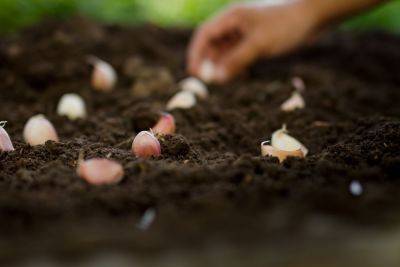<use xlink:href="#trending-icon" xmlns:xlink=«http://www.w3.org/1999/xlink»> Trending Videos
Seeds Ideas, Tips & Guides
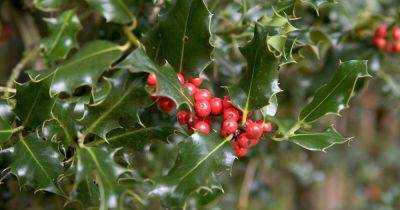
How to Grow Holly
Holly, Ilex aquifolium, typically has dark green, spiny leaves and bright red berries. However, there are many different varieties of holly with different coloured laves and berries – more than 400 from around the world.
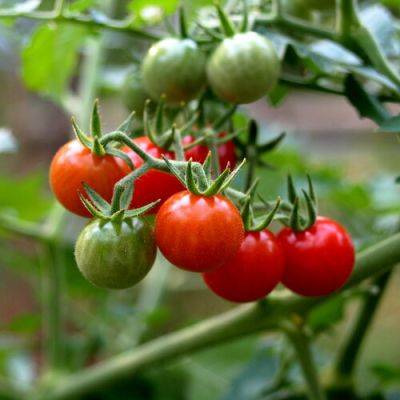
Tomatoes for Mountain West Gardeners
Despite working predominantly in ornamental—especially naturalistic—horticulture, I hold an “interdisciplinary minor in organic agriculture” from Colorado State University. Early in my career I worked primarily in food crops, and before I was 20 years old I spent summers in bean-breeding fields, diversified food-cropping systems, and home gardens. Through my years of food gardening, I’ve found that growing tomatoes even at 5,000 feet here on the “Front Range” is a gamble. With frequent cool, wet summers or late spring frosts—or worse, early killing frosts in fall—ours is not a favorable region in which to grow classic, meaty tomatoes.
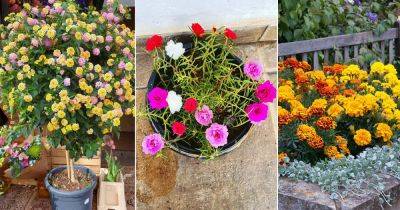
17 Plants that Bloom Instantly After Planting
If the thought of waiting weeks or even months for blooms to appear on plants, well, those days are gone! Here are the ones that flower in no time!

Should you do No Mow May? The pros and cons…
The basic idea of No Mow May is simple. Just don’t mow your lawn in May, which allows some wildflowers and weeds to bloom. This provides valuable nectar and habitat for emerging pollinators. And they in turn are a food source for birds, bats and other wildlife.
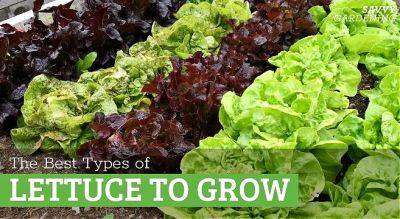
The Best Types of Lettuce to Grow in Gardens and Containers
Flip through any seed catalog and you’ll quickly discover that there are many types of lettuce to grow. Certain lettuces, like loose-leaf and oakleaf, are best enjoyed as baby greens while others, like iceberg and butterhead, are grown for their mature heads. Texture can also vary and some lettuces, like butterhead varieties, have tender, buttery leaves and others, like romaine, have crisp leaves for a satisfying crunch. In this article I’ll share the different types of lettuces and offer advice to help you choose the best ones to grow in your garden. The best types of lettuce to grow With so many types and varieties of lettuce available to gardeners (romaine, butterhead, loose-
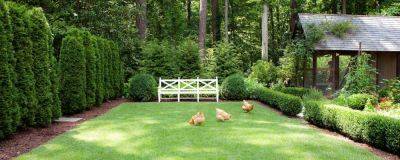
The Ultimate Guide To Southern Lawn Care
Spring is in the air. There's no better time to get outside and make sure your lawn is looking its very best.
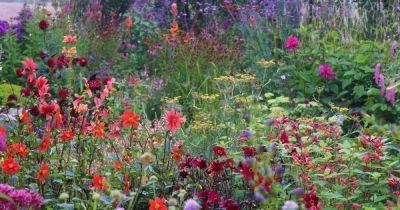
Gardening: Two well-grounded reads on the fleeting essence of time and bittersweet beauty of natural world
It’s often said that making a garden teaches all kinds of valuable life lessons, from the importance of patience and the virtue of persistence, to a recognition of the fleeting nature of time and the bittersweet beauty and resilience of the natural world.
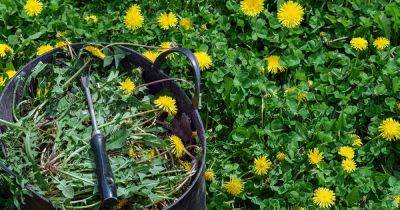
How to Control Dandelions in the Lawn or Garden
How to Control Dandelions in the Lawn and Garden
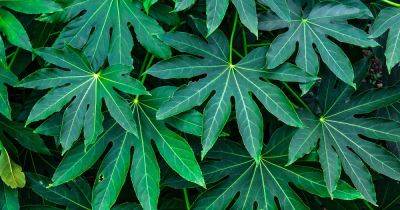
How to Propagate Fatsia from Seed | Gardener's Path
How to Propagate Fatsia from Seed
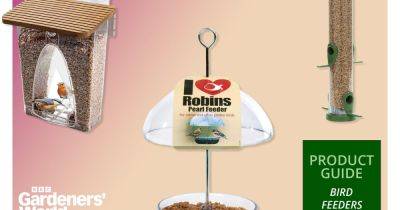
Best bird feeders UK: squirrel proof and more
Well-stocked bird feeders help to supplement birds’ food when it’s in short supply. Throughout the winter months, high-fat foods and water are in short supply but even through the spring and summer, a bird feeder will help to increase the number of birds you’ll see and help them raise their chicks successfully. Plus, ifyou’re regularly topping up your bird feeder, the same birds will continue to return as they learn your garden is a good source of food. Specialist bird cakes, seeds and food like mealworms and flaked maize are all good options and supplying a variety of foods is a good way of attracting a wider range of bird species to your garden.
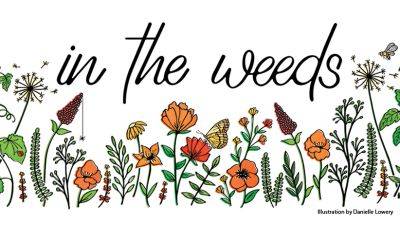
If You Give a Gardener a Rake....
If You Give a Gardener a Rake.... Sometimes starting a few garden chores in spring has a way of turning into an all-day affair! Finding joy in spring chores
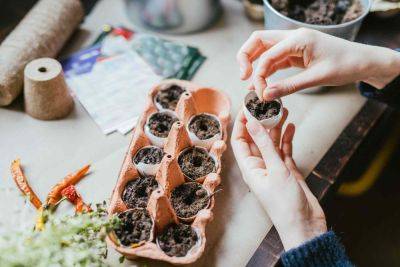
4 Gardening "Hacks" Pros Actually Want You to Avoid This Season
In the age of the internet and social media, gardening “hacks” that promise to benefit your plants and save you time and money are plentiful. However, according to gardening pros, these hacks aren’t always all they are cracked up to be.
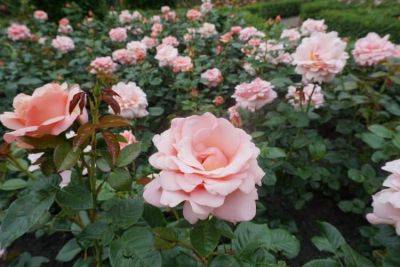
My Experience in Starting Seeds
A couple of years ago I had an exhausting spring planting season. I started everything from pansies to parsley from seed, and for weeks all I did was run from one windowsill to another with a watering can.I worried constantly about damping off disease. After I put the seedlings outside to harden off, I brought them back in again on stormy nights. Finally, when the last little peat pot was safely stowed in the ground, I resolved never to buy another seed packet again.
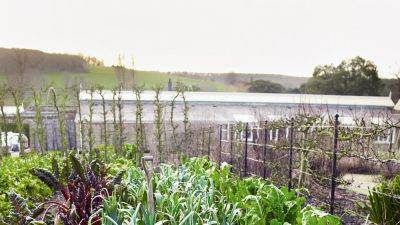
How to start a kitchen garden: what to do in April | House & Garden
This is one of the busiest months in the vegetable garden with a flurry of sowing. I tend to sow most things in seed trays or modules initially, but the soil should be warm enough now to direct-sow most hardy vegetable varieties, including beetroot, chard, carrots and salad crops, straight into the ground. If doing this, use a traditional garden line to create drills and follow the spacing guidelines on each seed packet. Tender crops can also be sown under cover, in modular seed trays (tomatoes, sweet peppers and chillies) or 6-7cm pots (courgettes and squash). Pot these on as they get larger, or plant outside once the weather is warmer towards the end of May.
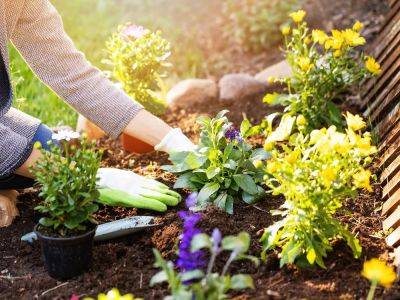
Ensure soil has 'staying power' to see plantings through the season
Reviews and recommendations are unbiased and products are independently selected. Postmedia may earn an affiliate commission from purchases made through links on this page.
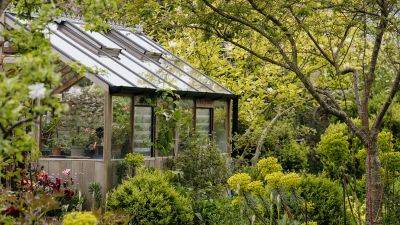
How to garden when you don't know how to garden | House & Garden
Gardening is not an inherent knowledge that we all magically have. Simply because you have some green space, it does not mean you know what to do with it and we cannot all be Tom Stuart-Smith, Arne Maynard or Gertrude Jekyll, more's the pity. So what do you do if you have a garden but have no idea how to garden?
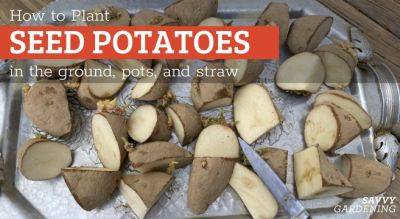
How to Plant Seed Potatoes in the Ground, in Pots, & in Straw
Potatoes are among the most productive vegetables for home gardens, and knowing how to plant seed potatoes properly ensures your success. For every pound of seed potatoes you plant, expect to harvest three to five pounds of spuds in return. That’s a great investment! Plus, with the long storage life of potatoes and the myriad of ways you can prepare them, they are a must-grow crop for many gardeners. And, to sweeten the deal even more, potatoes are a simple crop for beginner gardeners to grow. In this article, we’ll look at what seed potatoes are, how to plant seed potatoes, and how to grow them successfully—no matter how much, or how little, space you have to grow. What are seed potatoes? Seed potatoes are not actually seeds at all. Instead, they are small potato tubers that are used for plan
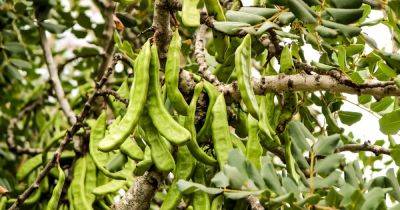
How to Grow and Care for a Carob Tree
The carob tree (Ceratonia siliqua), also known as the locust bean tree, is a perennial tree native to the Mediterranean, where it has been cultivated for centuries. It has attractive, leathery, dark-green evergreen leaves, small scented flowers and edible pods. Carob seeds are so consistently similar in weight that they became a standard measure of weight for precious items such as jewels and gold. If a jewel balanced the scales with five carob seeds on the other side, it was said to weigh ‘5 carobs’, which became ‘5 carats’. This figure is still used today, with one carat equal to 200 milligrams.
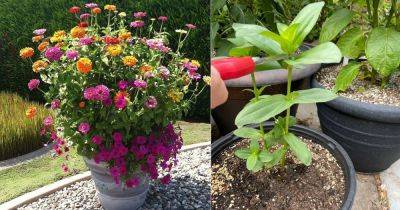
8 Best Tricks for Never Ending Zinnia Blooms in Your Garden
Zinnias are easy to grow and have a long bloom time. They also attract plenty of pollinators, making them the top choice for any garden. So, if you need never-ending zinnia blooms in your garden, here are the best tricks!
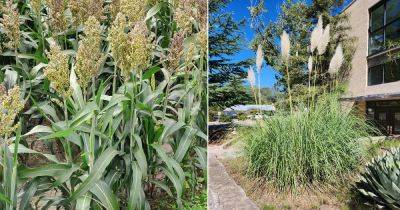
12 Plants That Look Like Corn
This article uncovers a variety of plants that not only mimic the appearance of corn, but also look eye-catching with their tall stalks of lush, green leaves, making them a great addition in garden and pots!
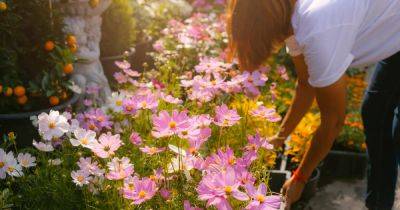
Gardening: 10 fast-growing, ultra-productive annuals that can be sown right now
It’s April, that most magical of months, when nature’s life force quickens day by day and every tiny seed sown is a powerful spell racing to transform itself. With that in mind, below are 10 fast-growing, ultra-productive annuals that I wouldn’t be without, all of which can be raised from seed sown in the next couple of weeks.
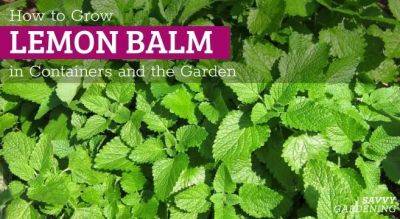
Growing Lemon Balm in Pots
Lemon balm is one of those herbs I associate with a soothing herbal tea. A calming tea blend is what led me to start growing this fragrant member of the mint family (Lamiaceae). While lemon balm doesn’t have the sophisticated underground runner system that mint has, it does like to reseed itself. In other words, plant it once and you may never have to plant it again! In this article, I’m going to share some growing tips, as well as why growing lemon balm in pots may be a better option than planting it in the ground. Lemon balm is native to the Mediterranean region and Central Asia. Its healing history dates back to Greek mythology. And while i
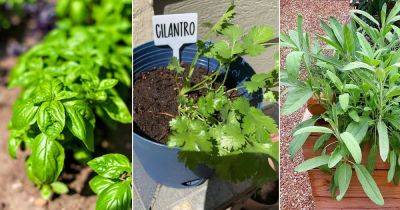
11 Fast Growing Herbs You Can Grow From Seeds
These Fast Growing Herbs You Can Grow From Seeds germinate quickly, which means you can start them indoors anytime without waiting for weeks for them to emerge. It’s also inexpensive compared to buying plants from the store.
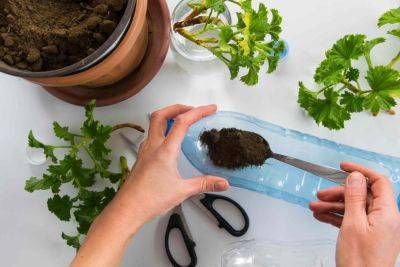
6 Ways to Repurpose Plastic Bottles Around Your Home
Plastic bottles are often, but not always, great candidates for the recycling bin. However, there are other ways to give this item a second life before tossing it. It's good to get in the habit of looking for ways to make ordinary items multipurpose.
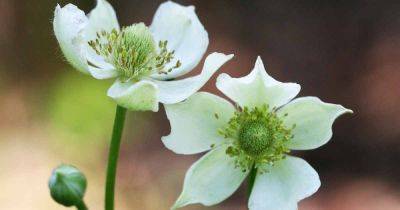
How to Grow and Care for Thimbleweed
How to Grow and Care for Thimbleweed Anemone virginiana
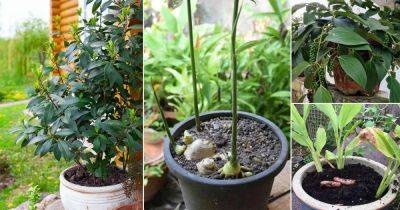
Grow these 10 Herbs and Spices from Cuttings and Divisions
You can grow these herbs and spices from cuttings and divisions very easily without waiting too long for the harvest! A sunny windowsill will be more than apt for most of these!
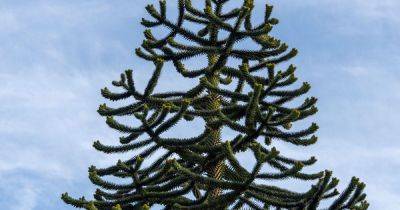
How to Grow and Care for a Monkey Puzzle Tree
The monkey puzzle tree (Araucaria araucana) is a large evergreen tree with a distinctive shape – its often horizontal branches are covered in spirals of sharp, triangular leaves. When mature, trees produce large cones at the tips of the branches.
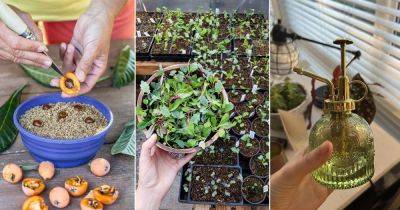
11 Dumbest Seed Starting Mistakes Anyone Can Make
To enhance the chances of plants sprouting, you need to ensure you follow the right set of rules to roll the green dices in your favour. These are some of the dumbest seed starting mistakes people do without realizing their consequences.
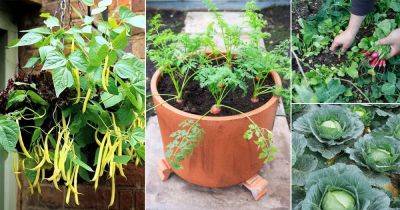
14 Best Vegetables for Southern California
The Southern Californian region has zones 5a to 11a and experiences a Mediterranean climate with warm and sunny summers along with winters full of rainfall. It’s a bit on the hotter side, which means it’s great for growing many different kinds of veggies!
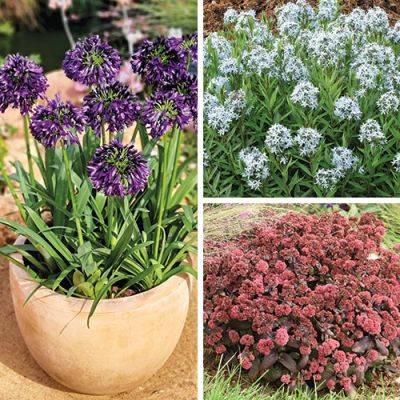
The Best Perennials for 2024
No matter how large or small a garden is, there’s nothing like a few new plants to make the gardener’s heart sing. We’ve looked over the introductions for 2024 and found some we think you’ll love as much as we do. From jaw-dropping flowers to fabulous foliage and a few tasty edibles, there’s sure to be a plant (or several) that will have friends asking, “Where did you get that?” The challenge with new introductions is that numbers are often limited the first year, so it can be a bit of a challenge to find them at garden centers or online nurseries. So shop early and don’t give up; these gorgeous new plants are sure to be around next year too.
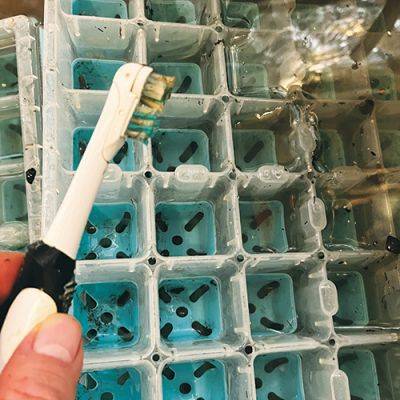
6 Gardening Tips that Repurpose Common Household Items
Gardeners often find ingenious ways to solve problems. Below you’ll find tips from our readers that repurpose common household items to great effect. Get an edge on gardening and peruse all of our past gardening tips here.
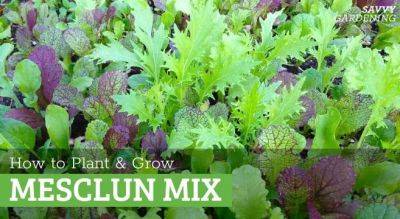
Mesclun Mix: How to Plant, Grow, and Harvest Gourmet Greens
Growing mesclun mix in garden beds and containers is a quick and easy way to enjoy a non-stop crop of gourmet salad greens. Mesclun is a blend of greens that includes lettuce, arugula, kale, and spinach which are picked when still immature. Mesclun greens make delicious and beautiful salads with a variety of colors, textures, and flavors. In this article you’ll learn how to plant, grow, and harvest mesclun mix as well as discover 10 awesome types of mesclun greens. What is mesclun mix? You may have spotted mesclun salads on menus in upscale restaurants or in gourmet salad packs at the grocery
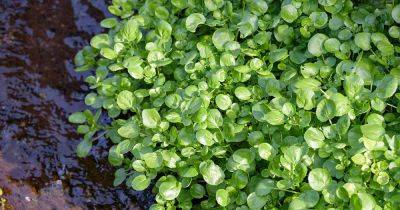
How to Plant and Grow Watercress
How to Plant and Grow Watercress Nasturtium officinale
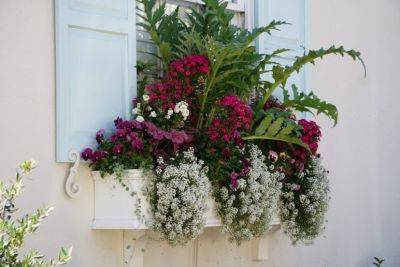
Sweet Alyssum
The fragrant blooms of sweet alyssum (Lobularia maritima) give this flower its name. This cool-season annual is known for its profusion of white flowers. There are also lavender, pink, and purple blooming varieties available. It pairs well with other spring flowers like pansies, violas, dianthus, snapdragons, etc.
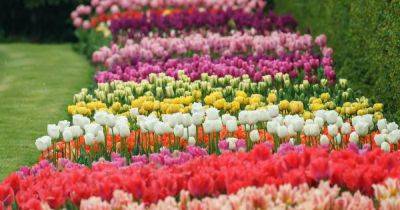
Hail Irish horticulture: Five ways to celebrate St Patrick’s Day in the garden
From the lone Irish yew tree, first discovered growing in Co Fermanagh in the 18th century, whose countless offspring now flourish in gardens all over the world, to the great Irish gardeners, garden makers, planthunters and plantspeople who have made valuable contributions to the world of horticulture, we have many reasons to be proud of our unique gardening tradition. Here are some suitably horticultural ways to celebrate Ireland’s “40 shades of green”.
Popular Topics
Welcome to the "Seeds" section of diygarden.cc! Here, we delve into the fascinating world of seeds and provide you with valuable information to help you unlock the potential of these tiny powerhouses in your gardening endeavors.
They are the reproductive structures produced by plants, the result of fertilization and contain the embryonic plant, along with a supply of nutrients to support its initial growth.
Seeds play a crucial role in the plant life cycle, enabling plants to reproduce and spread to new locations. Seeds are typically formed within the reproductive structures of plants, such as flowers, cones, or fruits. Inside a seed, there is an embryo, which consists of the young plant in a dormant state. This embryo has a root, stem, and one or more leaves, which will develop into the mature plant.
In addition to the embryo, a seed also contains a food source called the endosperm or cotyledon. The endosperm provides essential nutrients, such as carbohydrates, proteins, and fats, to support the early growth of the germinating seedling until it can establish its own photosynthetic capacity.
Seeds come in various sizes, shapes, and structures, depending on the plant species. They may be tiny and barely visible to the naked eye, like those of orchids, or large and easily recognizable, like the seeds of sunflowers. Some seeds have protective coverings, such as hard shells or husks, while others are enclosed within fleshy fruits.Our "Seeds" section of diygarden.cc provides you with valuable knowledge, tips, and techniques to embark on your gardening journey.
Our site greengrove.cc offers you to spend great time reading Seeds latest Tips & Guides. Enjoy scrolling Seeds Tips & Guides to learn more. Stay tuned following daily updates of Seeds hacks and apply them in your real life. Be sure, you won’t regret entering the site once, because here you will find a lot of useful Seeds stuff that will help you a lot in your daily life! Check it out yourself!
